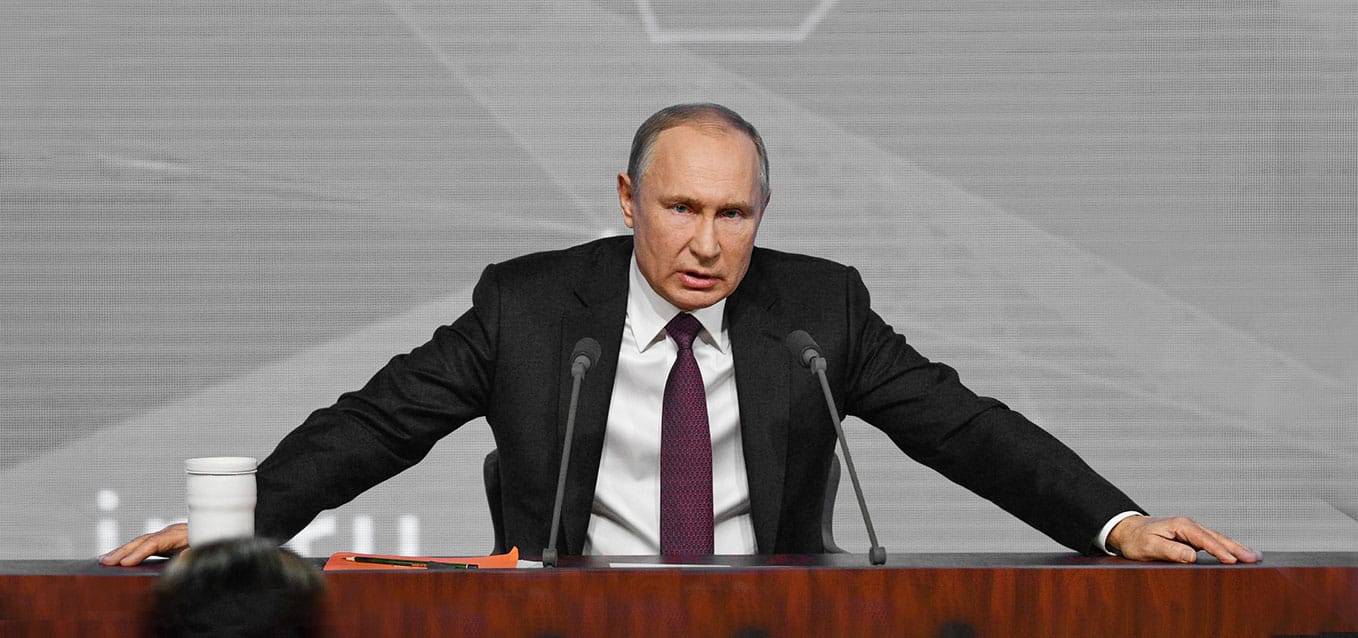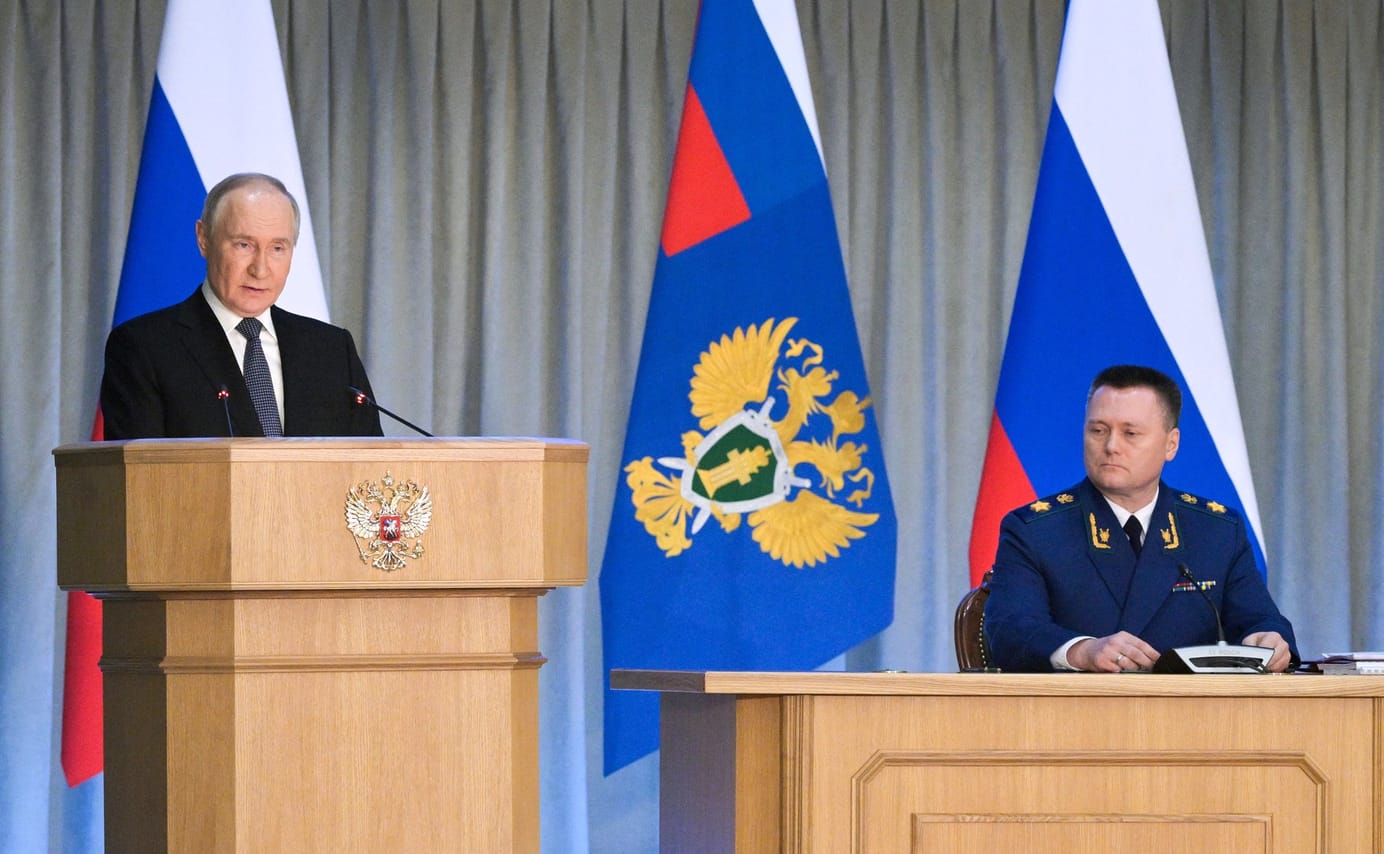
Russian banks squeezed as Washington tightens sanctions
Hello! Welcome to your weekly guide to the Russian economy — written by Alexander Kolyandr and brought to you by The Bell. Our top story this week is about how U.S. efforts to ramp up sanctions have caused some Chinese and Turkish banks to stop working with their Russian counterparts. We also look at how a major Russian oil refinery accident, which has been hard to repair because of Western sanctions, has had a significant impact on the gasoline market.
Turkish and Chinese Banks halt operations with Russia amid tightening US sanctions
Banks in China and Turkey, two of Russia's key trading partners, are increasingly refusing to work with Russian financial institutions. This is the result of efforts by Western countries to tighten sanctions imposed on Russia for its full-scale invasion of Ukraine. If this continues, it could push up the cost of cross-border trade for Russia and, in turn, fuel inflation.
What's going on?
Russian banks have been having problems with their foreign counterparts due to Western sanctions. Bloomberg reported Tuesday that Chinese banks were increasing checks on both Russian institutions, and institutions from third countries, for any links to Russia. At least two major Chinese banks have started checking their Russian business partners with a view to cutting off clients that are on the sanctions list, or connected with the defense sector.
Russian newspaper Kommersant reported Wednesday that Russian banks and companies were facing similar problems in Turkey. Since late December, many Turkish banks have apparently refused to work with their Russian counterparts – some officially, others by just suspending payments. Logistics companies working in Russo-Turkish trade complain that payments between have almost ground to a halt. Since the start of the year, Turkish exporters have almost completely stopped receiving payments from Russian companies in either rubles or lira, according to Turkish newspaper Economim.
Russian state-owned news agency RIA Novosti tried to reassure Russian business on Thursday, quoting a source that outlined plans to normalize payments with Turkey. So far, though, there has been no independent confirmation of this information.
What's the problem?
The issue is Executive Decree 14114, which was signed by U.S. president Joe Biden last month. Little reported at the time, this decree boosts the U.S. Treasury’s ability to sanction non-U.S. companies for aiding Russia’s defense industry. Now, banks in third countries are held responsible by Washington for sanctioned goods or services that appear in the supply chain. Moreover, they can face punishment for taking part, even unknowingly, in a transaction involving the supply of prohibited goods, or sanctioned companies.
While the risks of such “secondary sanctions” are rising, actual compliance remains the responsibility of the banks themselves. As a result, banks are demanding more documents from their clients. More and more often, they are just refusing to take on certain operations so as to avoid any risk of being hit with sanctions.
U.S. officials are not just doing all this on paper – they are also seeking to inform the authorities in third countries of the new requirements. Media reports have linked the panic among Turkish bankers with U.S. Secretary of State Anthony Blinken’s December visit to Turkey and his meeting with President Recep Erdogan. Given Turkey's eagerness to get off the Financial Action Task Force’s “gray” list for countries under increased monitoring because of suspected links to money laundering, we can assume the Turkish authorities welcome the caution of Turkish banks. TASS quoted a source who claimed many Turkish banks were “pausing” operations with Russia until they have clarification about the new instructions from the U.S. Treasury’s Office of Foreign Assets Control.
According to media reports, Andrea Gacchi, director of the U.S. Treasury’s Financial Crimes Enforcement Network had a meeting Wednesday in Hong Kong to outline sanctions policy to heads of local branches of Chinese and Western banks. Apparently, this was attended by executives from Bank of China, Industrial and Commercial Bank of China, Bank of Communications, CMB Wing Lung Bank, UBS, Citigroup, JPMorgan Chase, Goldman Sachs, Morgan Stanley, Deutsche Bank, Barclays and BlackRock. One attendee reportedly said that the banks expressed willingness to comply with the U.S. sanctions, and promised to review operations more carefully in the future.
Is the issue just with China and Turkey?
No. Russia’s new banking problems are highly unlikely to be limited to just Turkey and China. U.S. Treasury Deputy Secretary Wally Adeyemo is expected to travel to Europe and Japan this month to persuade banks there to tighten sanctions compliance. It’s also likely that countries in the Middle East and Central Asia will take more active measures.
A parallel process appears to be underway in the oil market. For example, the U.S. added United Arab Emirates transport company Hennesea Holdings and 17 of its tankers to the sanctions list Thursday after they were found to be carrying Russian crude priced above the $60 per barrel price cap imposed last year by the G7.
Why the world should care
All this is intended to reduce the flow of sanctioned goods into Russia and, hopefully, restrict Moscow’s military capabilities. But the consequences will likely be further reaching: transaction costs and reduced supplies will inevitably lead to higher prices for imports, fuel inflation, and add to the risks for Russian companies that rely on imported components. Reducing capital outflow will limit the macroeconomic impact, but likely not entirely. Finally, Russia’s current problems are a clear indication that sanctions can be made tougher and more effective – and that nobody in the West is interested in easing them.
Oil refinery accident highlights Russia’s sanctions vulnerability
The Russian gasoline market this week was directly affected by Western sanctions banning high-tech exports. A major accident at an oil refinery led to a significant fall in the volume of petrol available, and, in turn, an increase in prices.
- One of Russia's biggest oil companies, LUKoil, announced earlier this month the shutdown of an unspecified “technological installation” at its Nizhny Novgorod refinery, one of the five biggest in Russia. Shortly afterward, it emerged that, due to an accident on Jan. 4, the company had been obliged to completely stop using one of its catalytic cracking units. Western sanctions meant the problems could not be quickly resolved. As a result, gasoline production at the facility fell 50%.
- According to Kommersant, there was another major accident at the refinery last month. The affected unit has since been restarted, albeit with reduced power.
- The Nizhny Novgorod refinery accounts for 10% of Russia’s gasoline production. According to the State Statistics Service (Rosstat), gasoline production in the week starting Jan. 8 was down 11% compared with the week starting Dec. 11.
- The accident did not immediately impact prices due to reduced demand during the New Year holidays. But the government reacted quickly – suggesting it thought the situation could be serious. The Energy Ministry announced Monday that it was setting up an operational headquarters involving all major oil companies. The companies have apparently agreed to limit gasoline exports and, for the moment, prioritize domestic needs. Sources told media outlets RBK and Interfax that the government is weighing up a possible blanket ban on gasoline exports.
- LUKoil has said it will fully repair the plant by spring, but due to sanctions it won't be easy for the company to obtain the necessary equipment, Kommersant reported.
Why the world should care
This accident is the first case in which Western sanctions have had a direct, and dramatic, impact on Russia's fuel market. If a technical solution cannot be found by LUKoil, it’s likely gasoline prices will rise, and that will impact inflation and even interest rates. However, from a more general perspective, the incident illustrates a bigger issue: it’s going to be harder and more expensive to acquire necessary equipment – in some cases, even impossible. Switching exclusively to domestically produced equipment, or alternative suppliers, takes time, and could increase prices while reducing quality and productivity.
Figures of the week
- Inflation in Russia from Jan. 10 to Jan. 15 (a shorter reporting period than normal due to the holidays) was 0.13%, Rosstat said Wednesday. Year-on-year inflation was 7.44%, compared with 7.42% at the end of December.
- In 2022, Russia recorded its first increase in the number of people with alcohol dependency issues in a decade, according to Rosstat. Between 2010 and 2021, the number of alcoholics diagnosed in Russia fell from 100,000 to 53,000. However, in 2022, it ticked slightly upward to 54,200.
- For the third month in a row, Russians continue to buy foreign currencies at higher-than-usual volumes, according to the Central Bank’s report on financial stability. The total volume of purchases in December reached almost 179 billion rubles, with the dollar and the euro remaining the most attractive currencies. It’s likely that much of this is linked to travel over the New Year holiday period.
Further reading
The War in Ukraine Has Become a Peripheral Concern for the West
Russia’s Outrage Over U.S. Strikes Against Houthis Is Just Bluster





